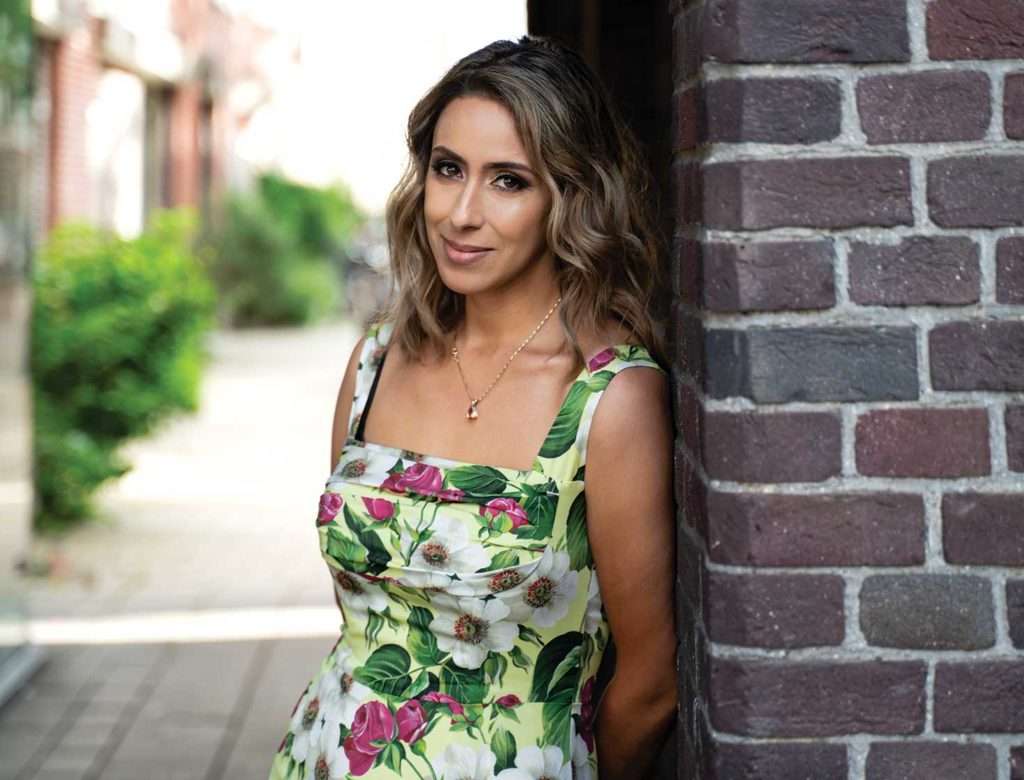
Dutch novel echoes urban American themes
Three women in an urban beauty salon scheme plot against the manipulative owner to get their due in a madcap mix of social, romantic and material ambition.
Everything, of course, goes terribly wrong but terribly funny in Dutch novelist Najoua Martin’s darkly comedic debut, which draws on Black beauty and barbershop humour.
“Lala Rosa Girls,” set in gritty Rotterdam’s Moroccan community, portrays the struggles of new arrivals but touches on universal themes of cultural division and integration borrowed from African American literature and film.
Martin, a first-generation immigrant lawyer and professor living in Amsterdam, taps her own lived experiences to trace the lives of rivals F’dila, Layla and Souad, recreating in the textured trio the conversations and stories she picked up as a beauty-shop customer in Rotterdam’s lively Moroccan immigrant barrio, called “Cool,” where she grew up.
“I didn’t want to write the typical book about the conflicts of migrants and politics,” said Martin during a conversation over dinner in the heart of Amsterdam’s city centre, just a few feet from a moonlit canal. “We don’t really have in Europe the same extended tradition you find in African American literature of writing about the people themselves. If you read about people of African or Arab backgrounds, it’s usually focused on the difficulties of fighting oppression.”
Preparing to depart for a book launch at the literary Salmagundi Club in New York, Martin said she sought to bring her characters alive through a comedic approach. “You can unite people with comedy. You bring together people in a space where they can laugh at you and with each other.”
F’dila, dreaming of romance and money and finding her place in a bigger world, arrives in Rotterdam from her North African hamlet after a voodoo-assisted failure to steal a husband. An introduction to Hatim, owner of the Lala Rosa salon, rekindles hopes of success.
Hatim, a lustful schemer playing his own games, brings the fetching immigrant into the Lala Rosa fold, where her rudimentary salon skills produce disastrous results and draw suspicions from Layla and Saoud, her more-seasoned scissor-wielding colleagues.
Layla, a law student, and Saoud, a nightclub hopper, have their own textured relationships with Hatim, who plays all three off one another, each woman grasping at dangled hopes of one day owning the salon — where, by the way, men, except for Hatim are not allowed. Just like the barber shops and beauty parlours of African American life and literature, history often goes unrecorded.
At the Lala Rosa shop, potions and poisons and plots mingle to produce a surprising denouement — a baptism, of sorts, by fire.
In going beyond the typical European literary frame of immigrants presented as an exploited class, Martin says she was moved by the stories she heard in the Rotterdam beauty parlours and returned to them time and time again to capture conversations among the mainly Muslim clientele that would be deemed irreverent outside their walls.
“This story contributes to the empowerment of Arab women through comedy,” said Martin. “Everyone reminded me of the comparison between the movie ‘The Barbershop’ and the barbershop scenes from Eddie Murphy’s ‘Coming to America.’ That’s not surprising because I liked these comedies.”
But Martin puts her own twist on the genre in “Lala,” using her unique “Berber Shop” story to convey broader social lessons.
“All the stigmas you have about repressed women disappear when you hear their voices and understand their struggle in a world dominated by men. This story is set in Rotterdam but is about women everywhere who want to show the world what we’re capable of,” she said.
Martin, née Bijjir, is married to an American citizen, Josh Martin, a Harvard graduate and business executive. Like many Dutch citizens, she speaks flawless English and widely consumes American culture. They frequently travel from Amsterdam with their three children to visit her husband’s family in New England.
“If you have travelled a lot and met people with diverse backgrounds, you’ll understand that, in essence, people do not differ from one another,” she told the Banner. “I always compare culture and tradition with spices you mix into a dish. They give flavour.”
At home, the Martin family speaks three languages, makes Philly cheese steaks with Moroccan brochettes and watches American football, European soccer and the NBA.
Growing up in Rotterdam in the same neighbourhood where Moroccan soccer fans recently held wild celebrations after the team’s initial World Cup victories, Martin recalls, her father liked to tell stories and fairy tales “about Arab superheroes that were often female,” she said. “They always contained a moral message.” The message of “Lala Rosa Girls” resonated on stage, too, during a series of sold-out performances. It is now slated to be adapted into a series. “This is not just a comedy,” said Martin. “It’s intended as a revolution for equal rights. It’s time for an African-European comedy genre because we’re here as well.”

Magazine launched for helping women for success. Lakkars has always served and worked efficiently towards women empowerment, we have blossomed into America’s most-read fashion magazine.


